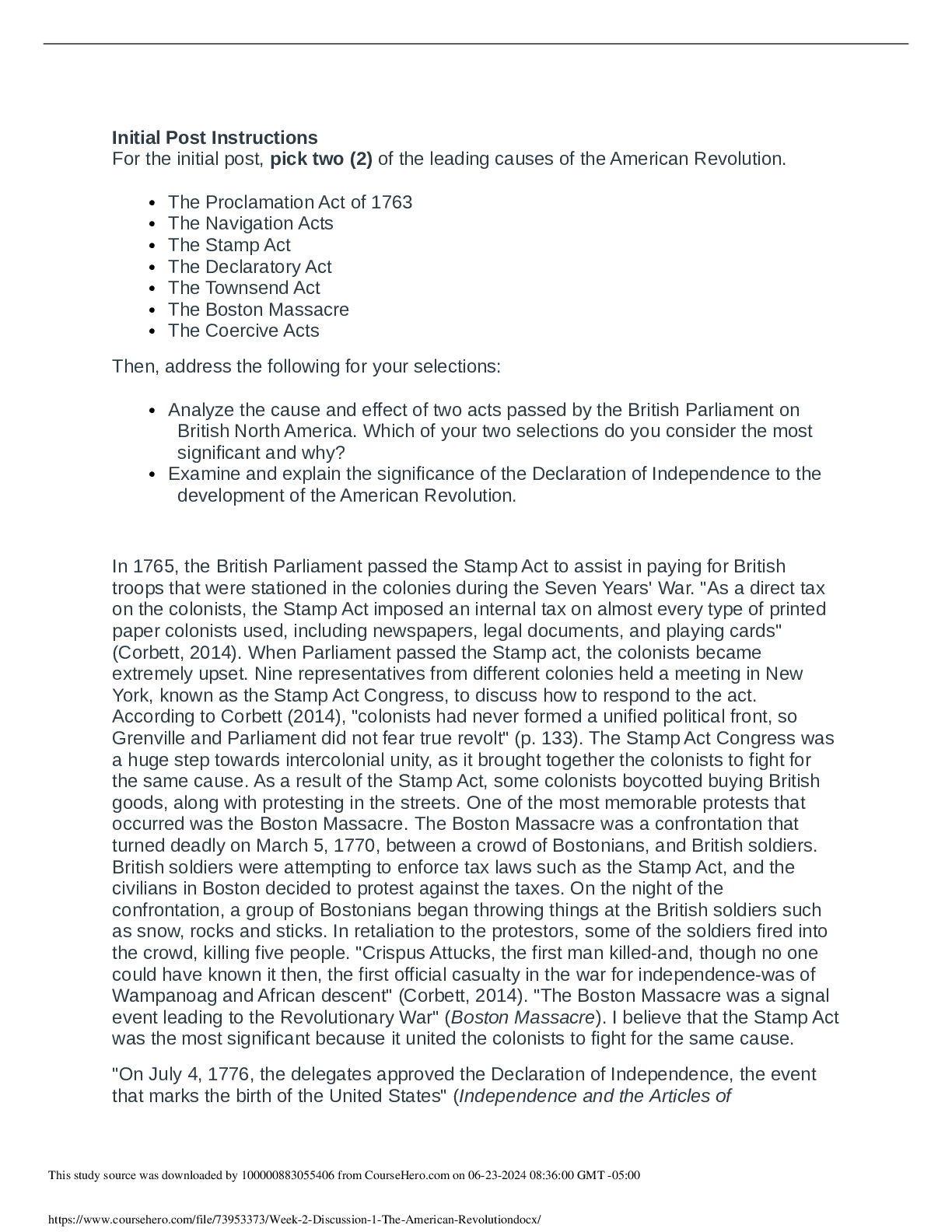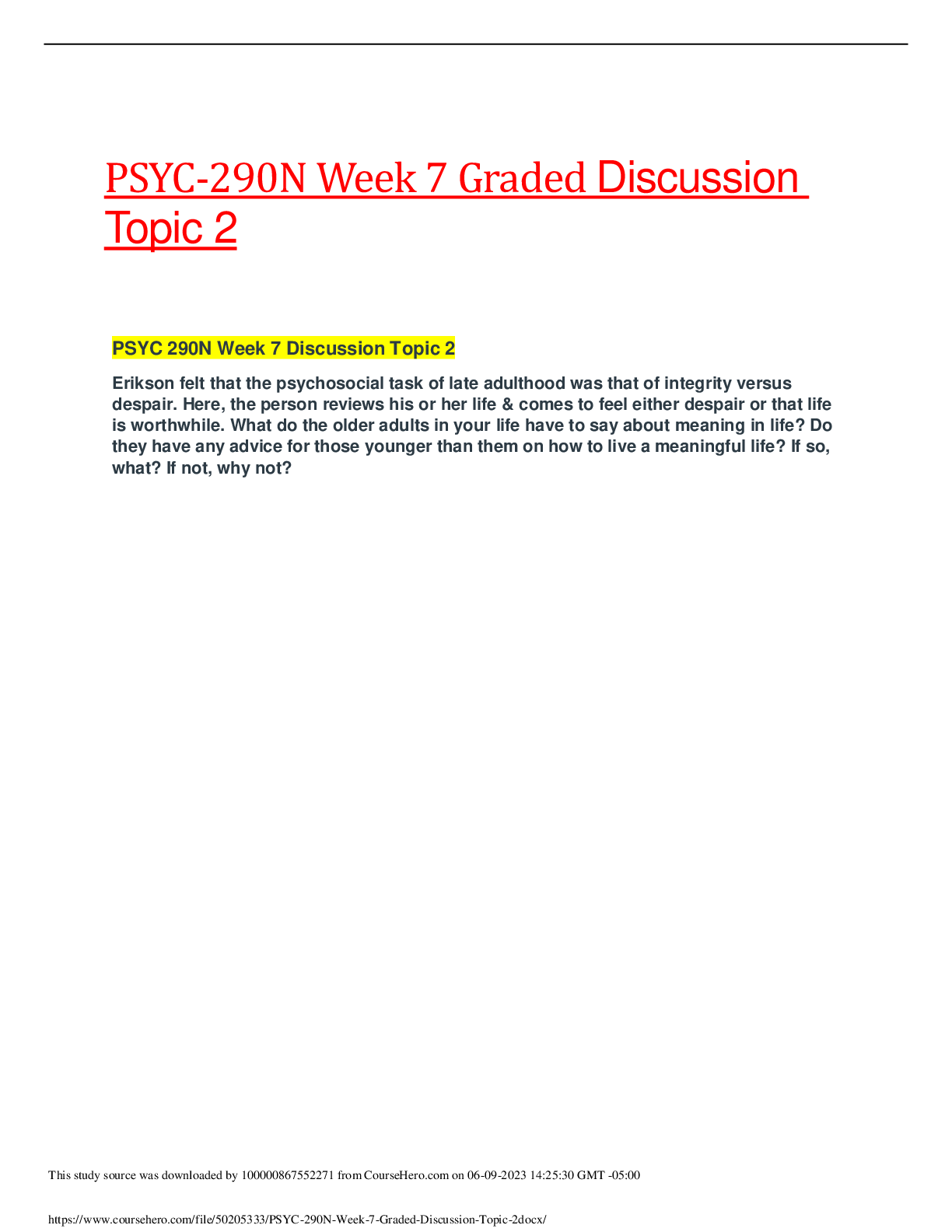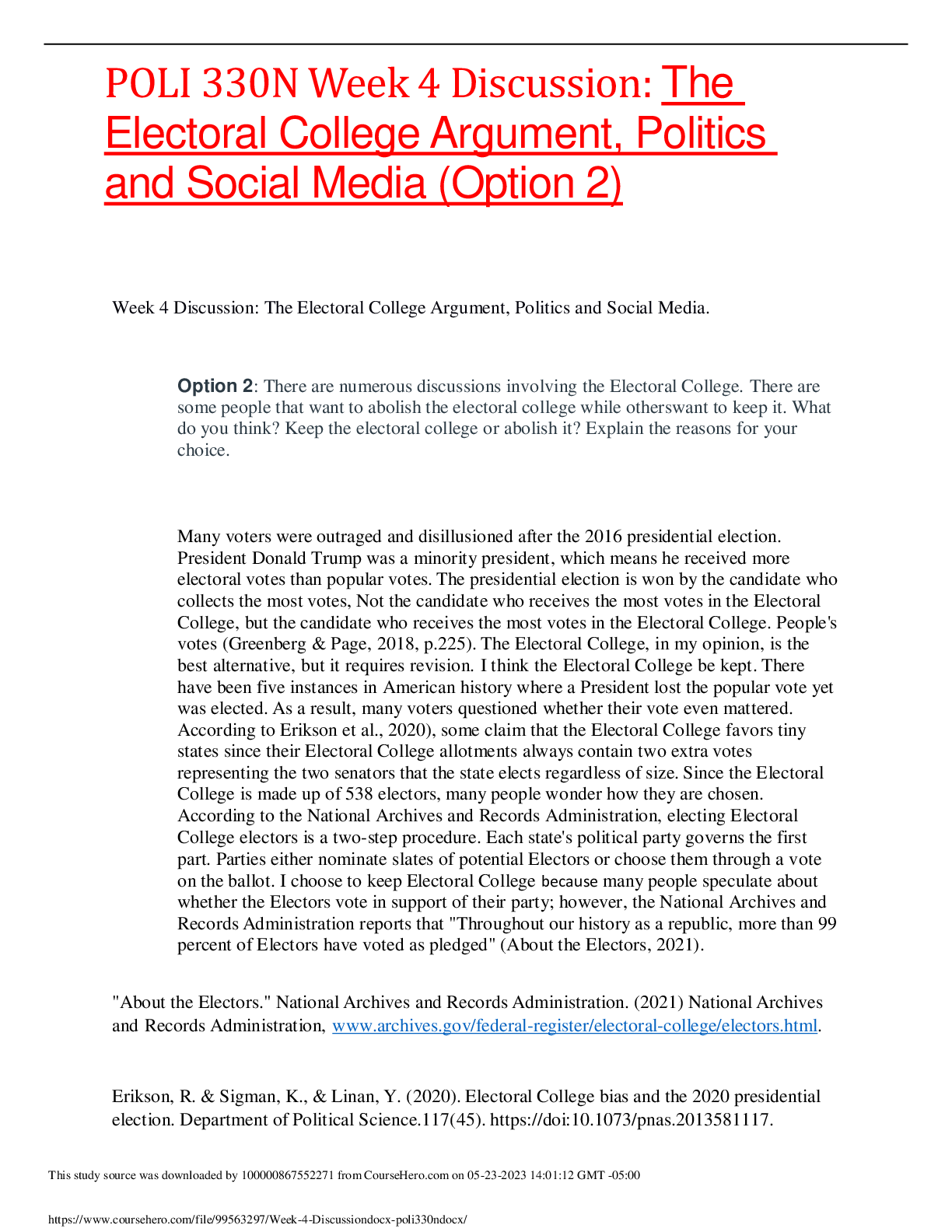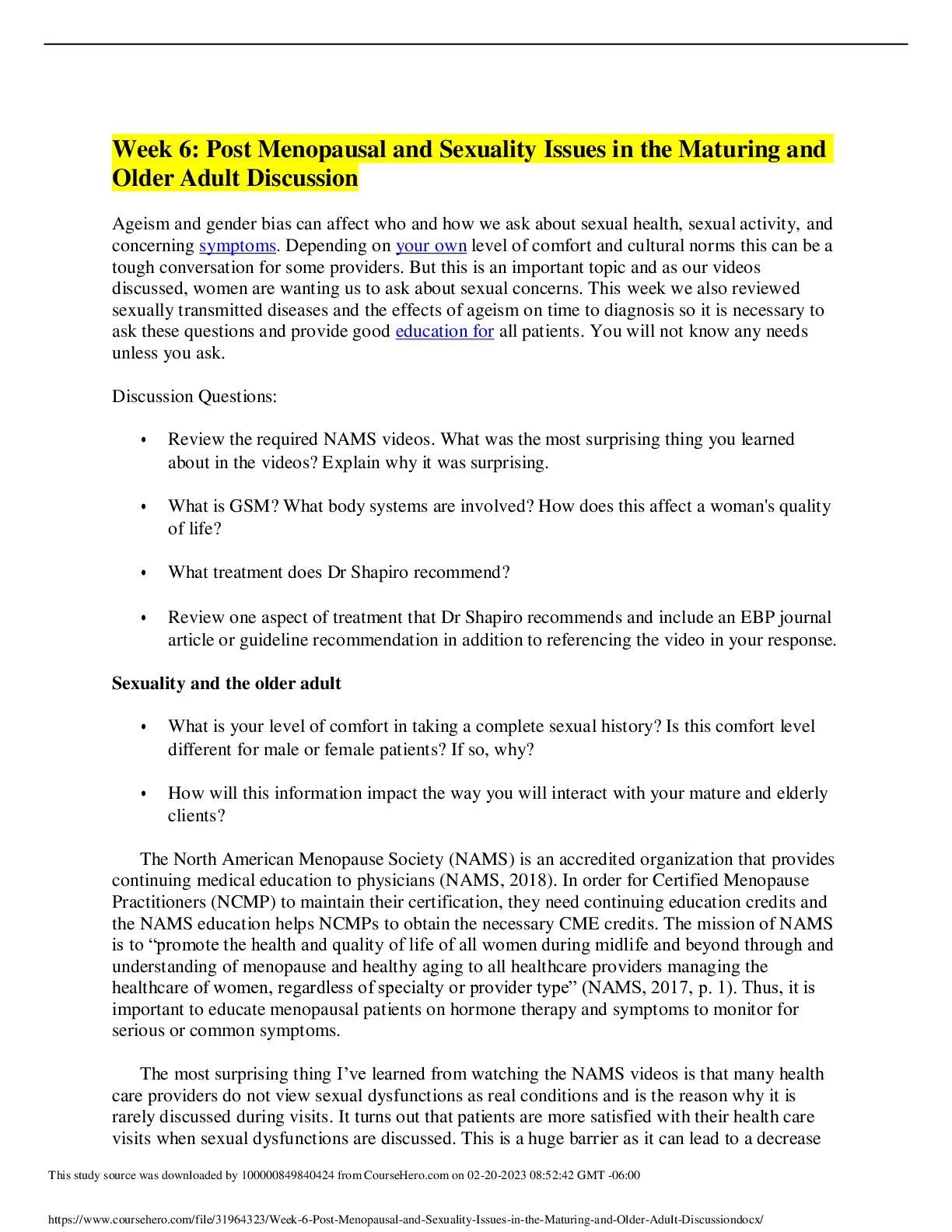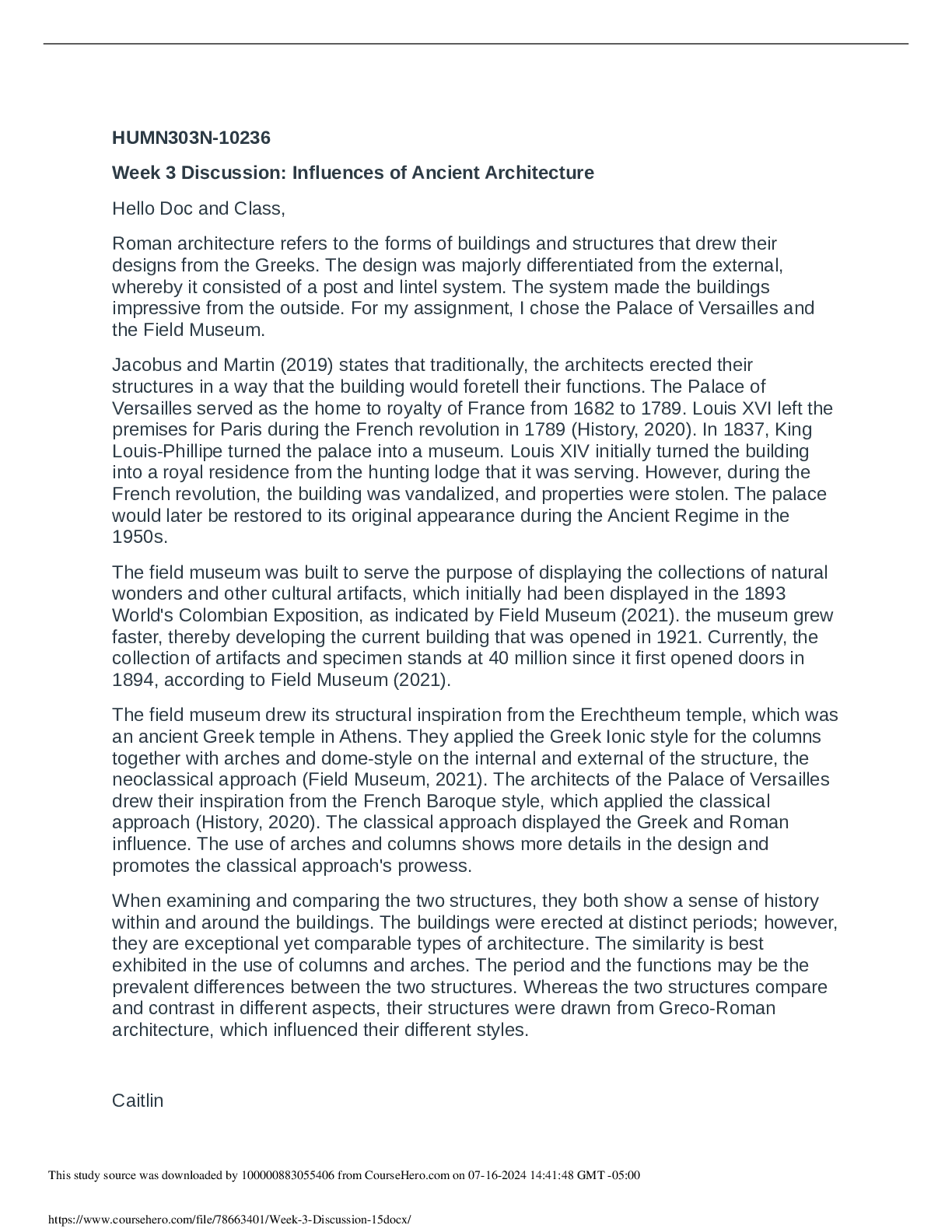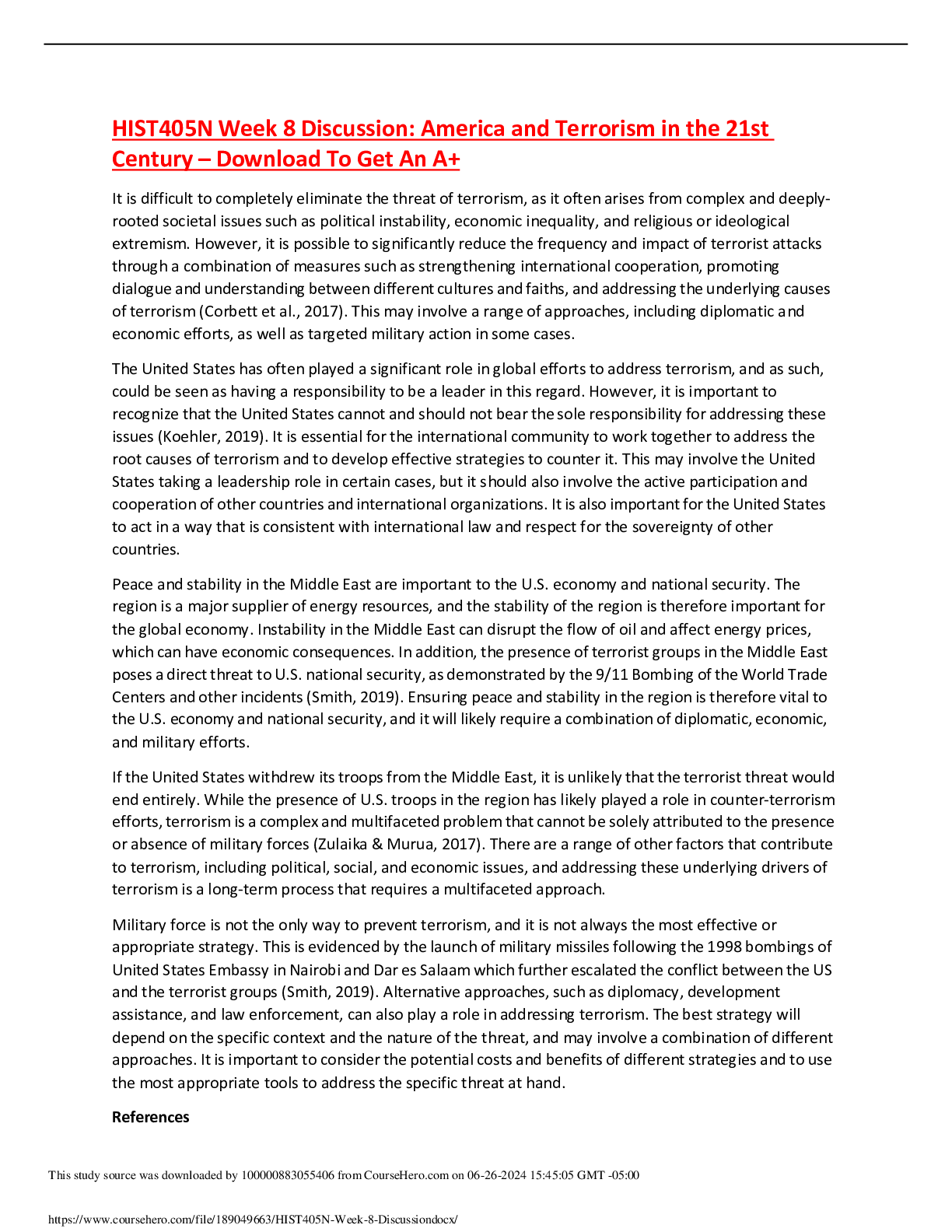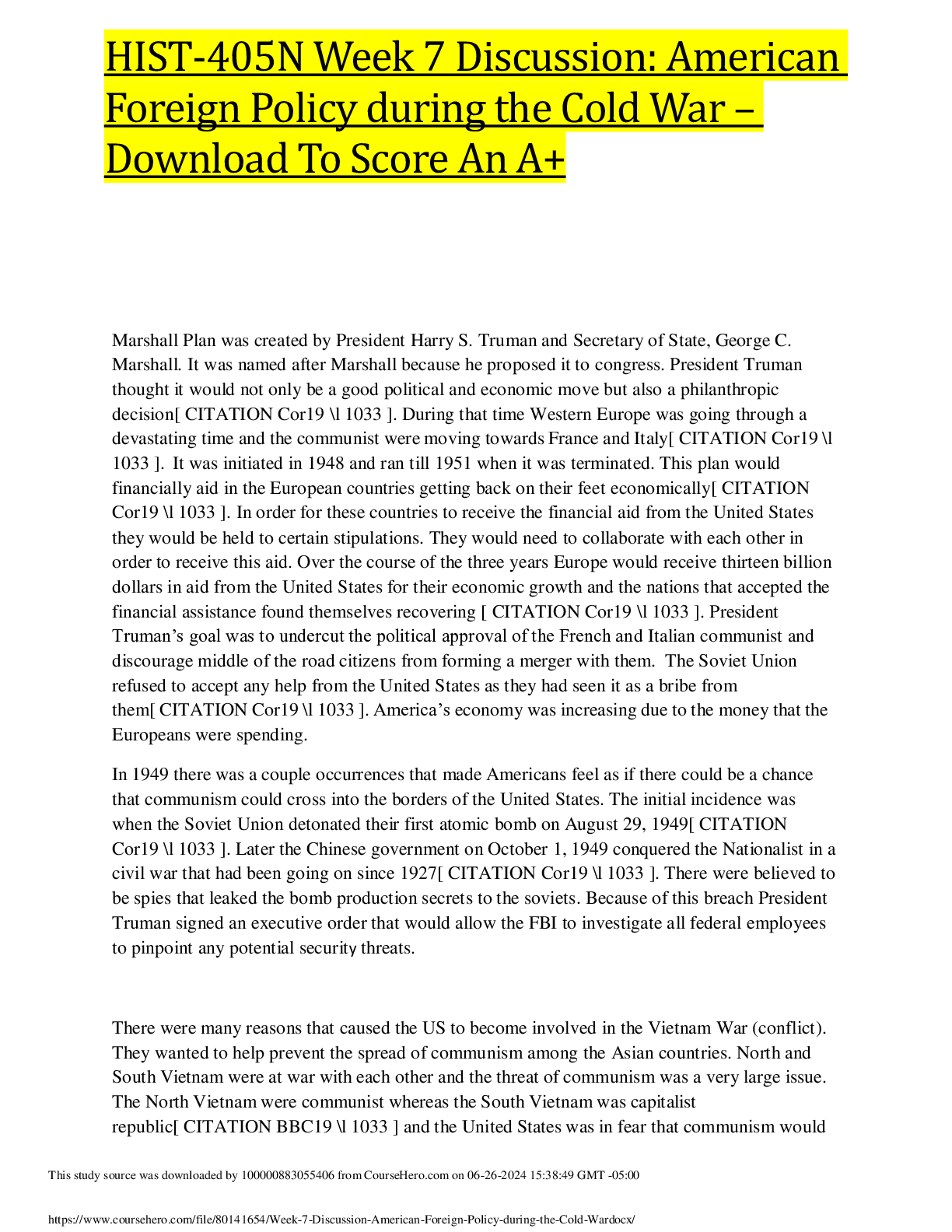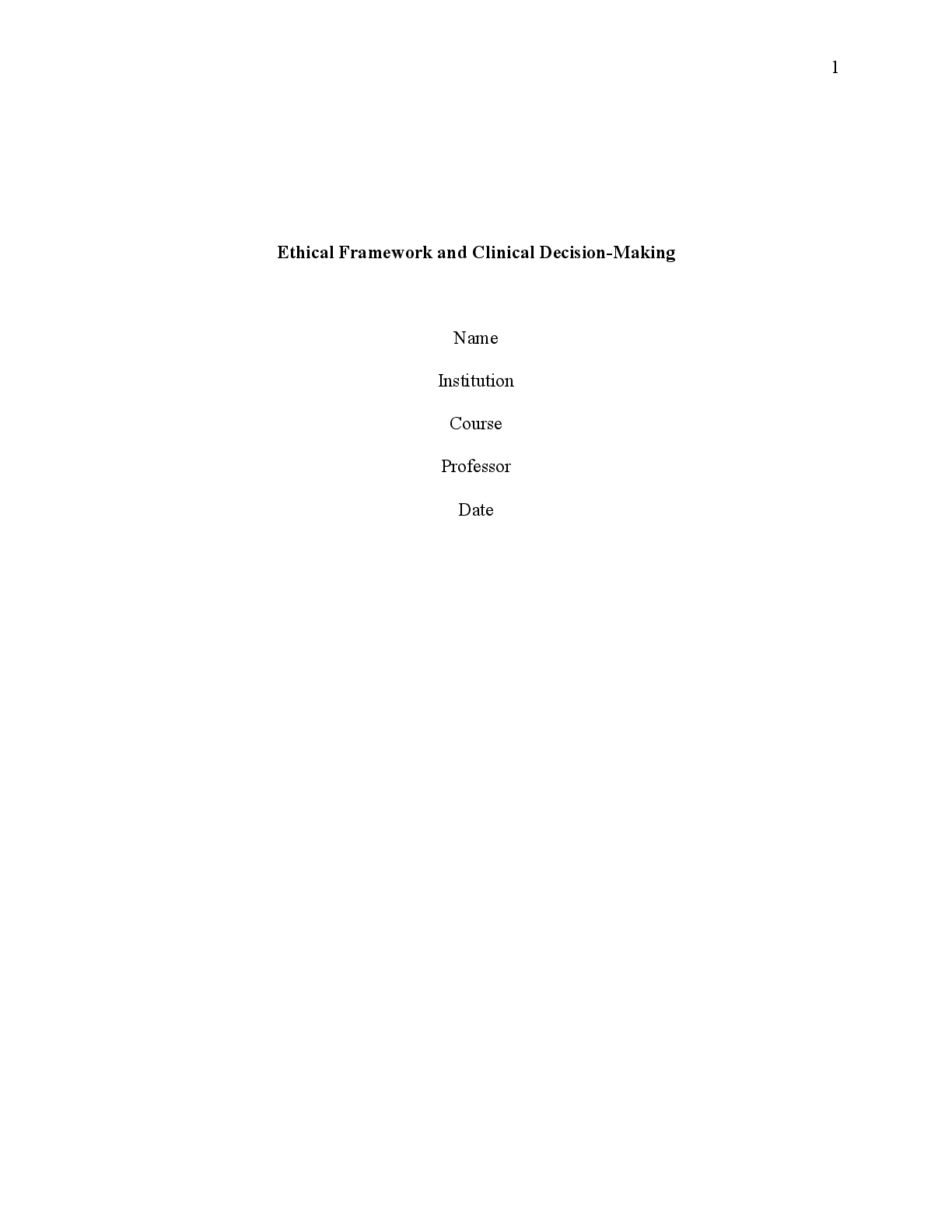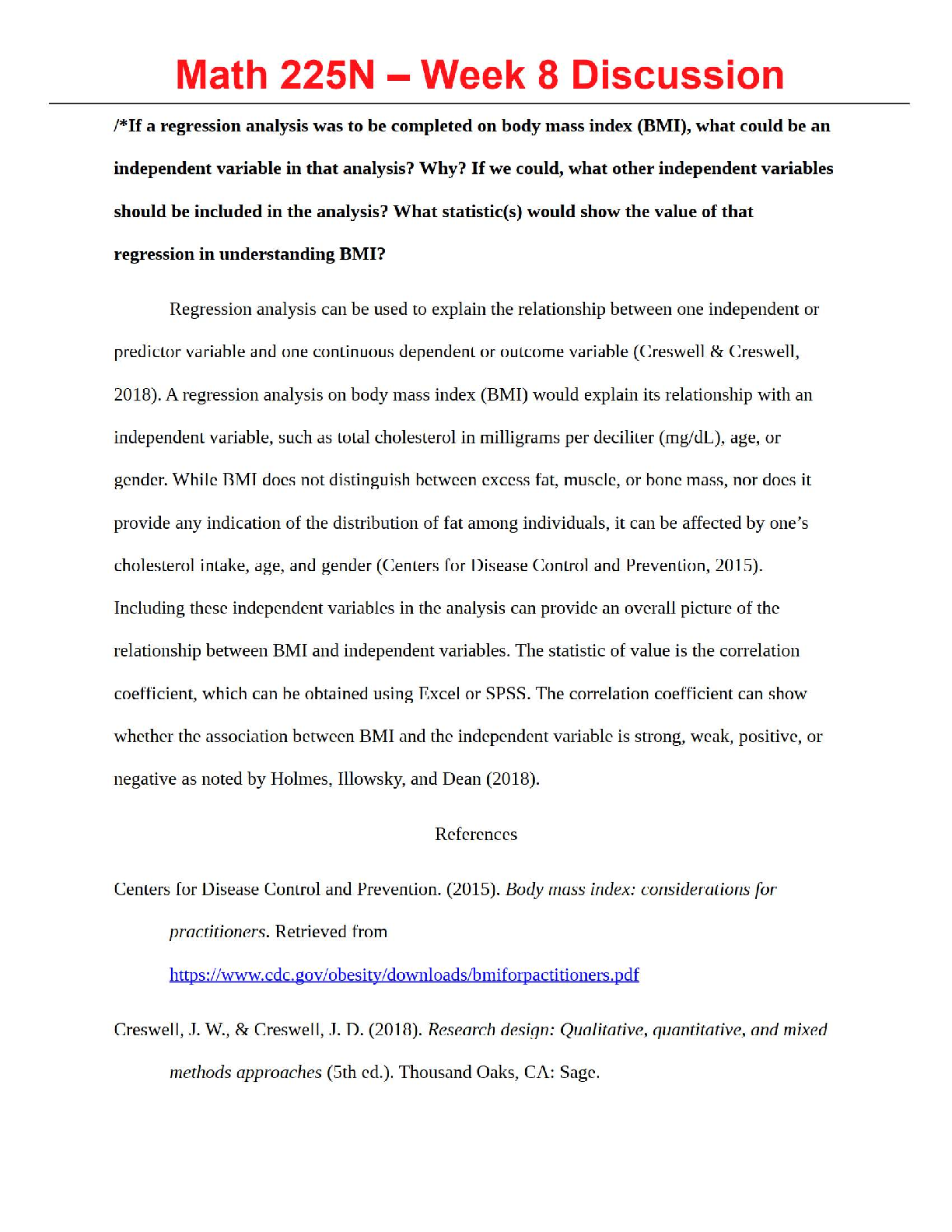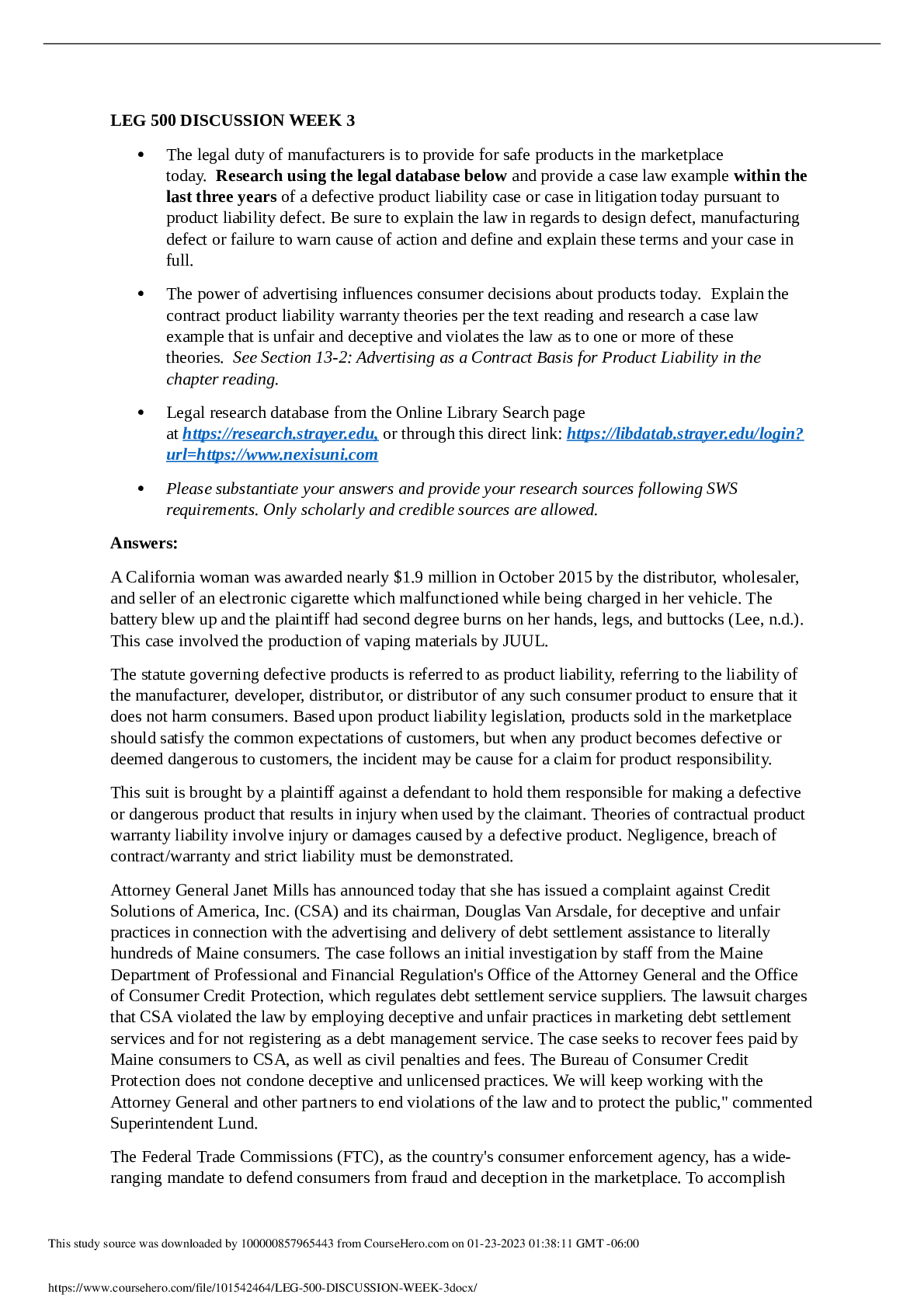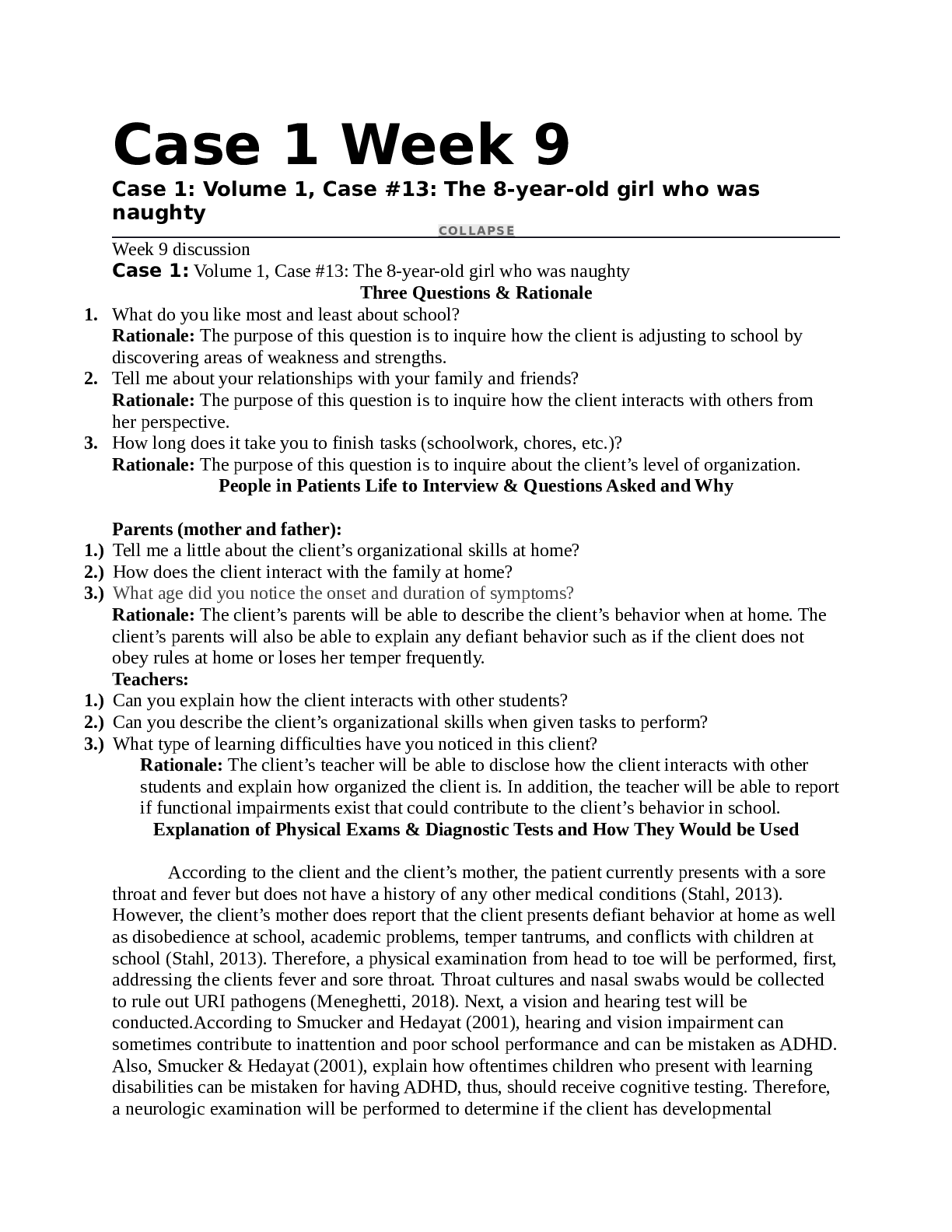Chemistry > DISCUSSION POST > CHEM120 Week 7 Virtual Lab: Introduction to Food Macromolecules Part I, Part II (All)
CHEM120 Week 7 Virtual Lab: Introduction to Food Macromolecules Part I, Part II
Document Content and Description Below
OL Lab 12: Introduction to Food Macromolecules Learning Objectives • Identify the types of macromolecules found in food • Identify the structure of carbohydrates, proteins, and lipids • Detec ... t macromolecules in food samples Introduction Macromolecules are very large molecules created by the polymerization of small units called monomers. Most of the macromolecules are present in everyday life, for instance in food. Learn about biological macromolecules There are several types of biological macromolecules: carbohydrates, proteins, lipids and nucleic acids. All macromolecules, except lipids, are polymers. A polymer is a long molecule composed of chains of monomers. Monomers are small molecules that serve as building blocks of polymers. In addition, there are also oligomers in nature. Oligomers are molecular complexes composed of a few monomer units, instead of the theoretical unlimited number of monomers. Dimers and trimers are oligomers composed of two and three monomers, respectively, such as lactose in milk for instance. However, in biochemistry, an oligomer usually refers to a macromolecular complex formed by non- covalent bonding of a few macromolecules, such as nucleic acids or proteins. An example is the oligomers found in many neurodegenerative diseases, such as the alpha-synuclein aggregations in Parkinson’s disease. Help your friend with your macromolecule knowledge In the Introduction to Food Macromolecules simulation, you will help your friend get a healthy diet and investigate the types of macromolecules found in food. By performing a series of biochemistry tests, you will know the contents of various food items. Can you use your macromolecule knowledge to convince your friend to change her diet to a healthier one? Part 1: Complete Labster Lab: Introduction to Food Macromolecules Part 2: Report and Reflection Purpose: Describe in complete sentences and in your own words, the purpose of this experiment. The purpose of this experiment was to see how present macromolecules are in life, especially food. Observations: Record three observations from the simulation. 1. Understanding the types of macromolecules found in food 2. Understanding the structure of carbohydrates, proteins, and lipids 3. Detecting macromolecules in food samples Answer the questions below: 1. Describe the key functions of one of the cases of biomolecules you studied in this virtual lab AND include key structural details. To perform biochemical test to elucidate the macromolecule content of food samples 2. Choose a food in your house. What are some of the biomolecules you expect to be in this food and why? A food I chose in my house is bread. Some biomolecules I expect to be in bread are nucleic acids. This is because bread is made from wheat which was once alive. 3. Reflection: Consider what you learned from this simulation. Reflect on three to four key concepts that you learned in this lab exercise. How could the lessons learned in this virtual lab related to a real world situation in the community/world or your future career? Be specific in your answer (this should require 5-10 sentences). I learned that there are several different types of macromolecules. Also, I learned what a polymers and monomers are. Next, I also learned how to understand the structure of carbohydrates, proteins, and lipids. This lesson I learned in this virtual lab can be related and applies in a real-world situation helping yourself and even a friend with macromolecule knowledge. You can get healthy with your diet and eating. This helps you know and understand the contents of various food items. Grading Rubric: Activity Deliverable Points Part I Complete simulation and answer all questions 9 Part II Complete lab report and answer questions • Purpose (1 point) • Observations (3 points) • Questions (2 points) • Reflection (2 points) 8 Total Complete all lab activities 17 [Show More]
Last updated: 1 year ago
Preview 1 out of 4 pages
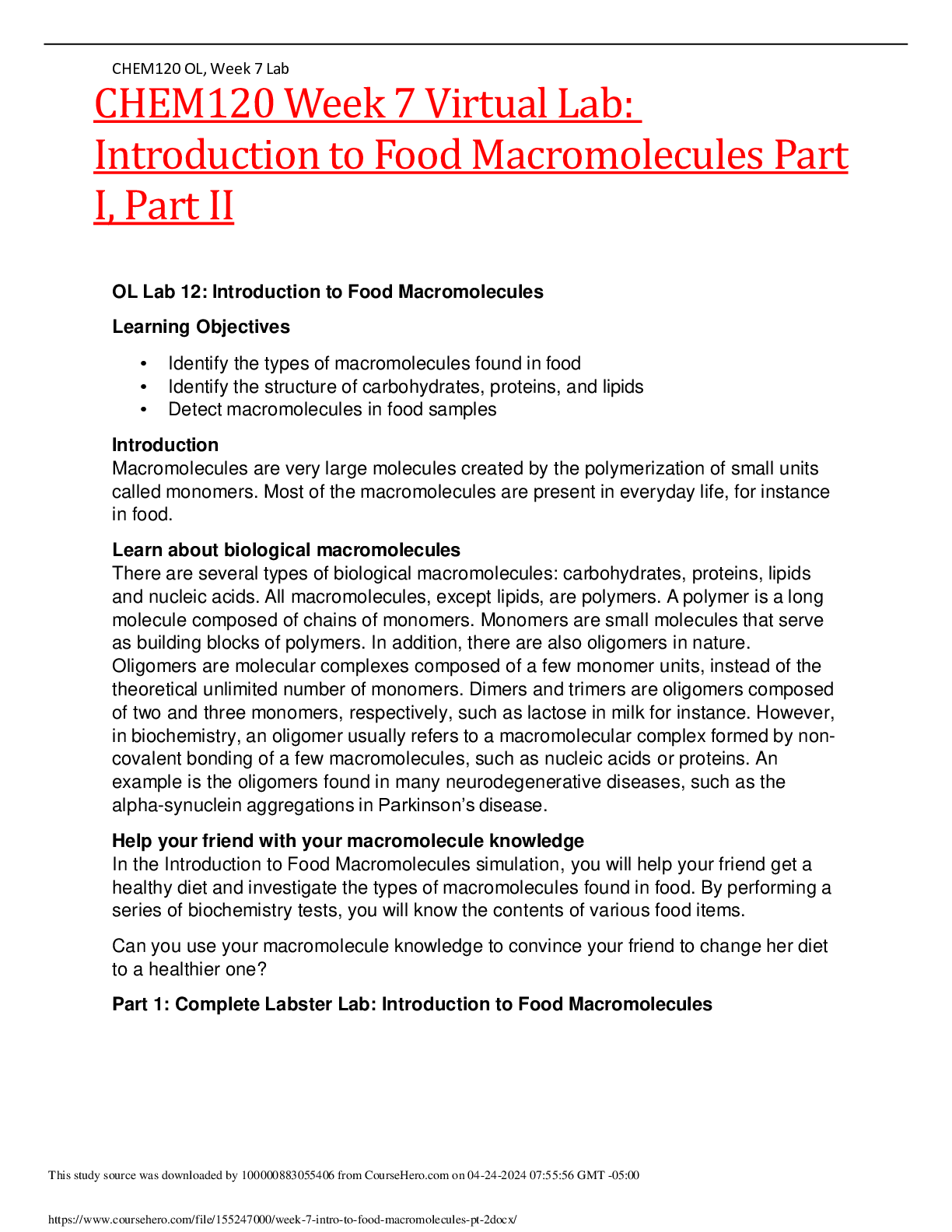
Buy this document to get the full access instantly
Instant Download Access after purchase
Buy NowInstant download
We Accept:

Reviews( 0 )
$10.00
Can't find what you want? Try our AI powered Search
Document information
Connected school, study & course
About the document
Uploaded On
Apr 24, 2024
Number of pages
4
Written in
All
Additional information
This document has been written for:
Uploaded
Apr 24, 2024
Downloads
0
Views
43

